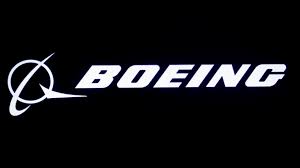DOJ and Boeing Settle 737 Max Fraud and Safety Charges for $2.5 Billion (Part I of III)

Boeing’s long and tragic scandal surrounding its 737 MAX safety concerns and FAA disclosure violations has come to an end. DOJ announced a settlement early this year, on January 7, 2021, which included a three-year deferred prosecution agreement (DPA) in exchange for total payments of $2.5 billion, consisting of: a $243.6 million criminal penalty, $1.77 billion in compensation to its airline customers, and $500 million to establish a crash victims’ beneficiary fund to compensate families of the 346 people killed in two crashes involving Boeing’s 737 Max. The criminal information charged Boeing with one count of conspiracy to defraud the United States.
Boeings 737 Max was involved in two crashes in 2018 and 2019 before being grounded. In October 2018, Lion Air flight 610 crashed in the Java Sea, killing 189 people, and in March 2019, Ethiopian Airlines flight 302 crashed shortly after takeoff, killing 157 people. The United States ordered the planes grounded shortly after the Ethiopian Airlines crash.
As part of the settlement, Boeing admitted that it withheld critical information about the 737 MAX jets’ Maneuvering Characteristics Augmentation System and the impact it had on the plane’s flight control system.
Boeing agreed to cooperate with the DOJ in any ongoing or future investigations and prosecutions, and is obligated to report any evidence or allegation of a fraud violation involving any government agency (including the FAA).

Boeing further agreed to strengthen its compliance program, and to a specific reporting obligation requiring Boeing to report to DOJ every three months and submit an annual report concerning its remediation efforts, any compliance program testing results, and its efforts to ensure an effective ethics and compliance program.
DOJ reached the settlement based on numerous factors under the Corporate Enforcement Policy, including the nature and seriousness of the offense; Boeing’s failure to timely and voluntarily self-disclose its conduct to DOJ; Boeing’s prior history including a civil FAA settlement agreement in 2015 relating to safety and quality issues concerning its commercial airplane business.
Boeing did not earn full cooperation credit. DOJ specifically cited its failure to cooperate during the first six months of the investigation which frustrated DOJ’s investigation.
DOJ cited Boeing’s remedial efforts, including:
- Creation of a permanent aerospace safety committee of the Board of Directors to oversee Boeing’s policies and procedures governing safety and its interactions with the FAA and other government agencies and regulators;
- Creation of a Product and Services Safety organization to strengthen and centralize the safety-related functions that were previously located across the Company;
- Reorganization of Boeing’s engineering function to have all Boeing engineers, as well as the Company’s Flight Technical Team, report through the Company’s chief engineer rather than to the business units; and

- Implementing structural changes to Boeing’s Flight Technical Team to increase the supervision, effectiveness, and professionalism of the Company’s Flight Technical Pilots, including moving the Company’s Flight Technical Team under the same organizational umbrella as the Company’s Flight Test Team, and adopting new policies and procedures and conducting training to clarify expectations and requirements governing communications between the Company’s Flight Technical Pilots and regulatory authorities, including specifically the FAA.
Boeing also made significant changes to its top leadership since the offense occurred.
DOJ determined that an independent compliance monitor was not was unnecessary because (i) the misconduct was neither pervasive across the organization, nor undertaken by a large number of employees, nor facilitated by senior management; (ii) although two of the Company’s 737 MAX Flight Technical Pilots deceived the FAA about MCAS by making misleading statements, half-truths, and omissions, others in the Company disclosed MCAS’s expanded operational scope to different FAA personnel who were responsible for determining whether the 737 MAX met U.S. federal airworthiness standards; and (iii) Boeing’s remedial improvements to its compliance program and internal controls.
Based on all the factors, DOJ agreed to a $243,600,000 criminal penalty, which reflected a fine at the low end of the Sentencing Guidelines range. DOJ also cited Boeing’s agreement to allocate $1,770,000,000 to compensate Boeing’s airline customers and $500 million in additional compensation to families and relatives of the crash victims of $1,770,000,000 in compensation to the Company’s airline customers; $500,000,000 in additional compensation to the heirs, relatives, and/or legal beneficiaries of the crash victims of Lion Air Flight 610 and Ethiopian Airlines Flight 302.














